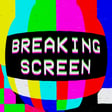
Filmmaker Josh Sambono: From note-taking to writing on Firebite and NCIS: Sydney
We’re joined by filmmaker Josh Sambono, a Jingili man who is known for his expertise in the action and horror genres, who talks about how his early training in sound recording influenced him as filmmaker, working as a director's attachment with Taika Waititi on Thor: Love and Thunder, and how the years of effort, note-taking, small steps and seeming dead-ends all came together when he pitched to write his first episode of television on AMC+ series Firebite.
Josh has worked in writers’ rooms with companies including Bunya Productions, Blackfella Films and See-Saw Films. His First Nations horror short Suspect premiered at BIFAN 2020, and won Best Australian Short at Sydney’s A Night of Horror. He made his TV writing debut on the 2021 AMC+ vampire hunter series Firebite and was one of the six writers selected for the NCIS: SYDNEY S1 Script Department Program - he has since been working on season 2.
